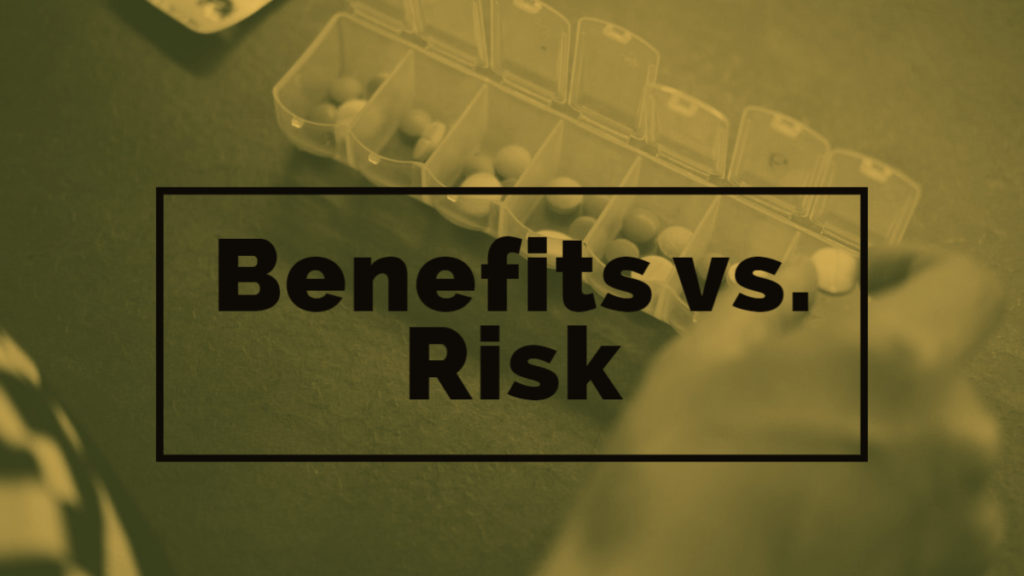How to navigate benefits versus risk when managing your loved one’s medication.

All medications have benefits and risks. The disclaimer at the end of a prescription drug commercial is hard to comprehend even to the trained health professional. Informed decisions regarding medication therapy should be made between the healthcare provider, pharmacist, and patient with a clear understanding of not only the benefits but the true risks involved.
Here are the top five questions to discuss with your healthcare provider or pharmacist regarding prescribed medications, over-the-counter medications, supplements and vitamins.
#1: Are there non-medicinal treatment options available to try before adding a new medication to my regimen?
Some newly diagnosed diseases, especially if found early, can see improvement with non-prescription options. Small changes to your eating habits, or simply adding 10 minutes of exercise to your daily routine can have a substantial change to your health. Your healthcare provider will be able to discuss these options with you and advise when medication should be introduced.
#2: What is the medication for and what can I expect?
Knowing specifically why a medication is being prescribed and an explanation of how the medication treats the specific indication is essential. Some medications take time before you will see or feel improvement. If the medication is not doing what you were told that it was supposed to do, you can alert your healthcare provider or pharmacist.
#3: What are the possible side effects?
This is crucial. There are many side effects listed on the patient information pamphlet you receive along with the prescription from the pharmacy, but you need to be told specifically what an expected side effect is. Recognizing an abnormal side effect could potentially be lifesaving, especially if it requires immediate attention.
#4: How and when should the medication be taken?
Some medications need to be taken with food, some without. Some medications work best if taken right before bedtime, while others 30 minutes before your first meal of the day. Knowing the proper timing can increase the efficacy of your medication dramatically and therefore give you the best results.
#5: How should the medication be stored?
Most medications can be stored in a cool dry place and should stay in their original containers. There are some medications that require refrigeration while others may be dispensed to you at room temperature but must be refrigerated after opening, and yet some medications will become ineffective if refrigerated. Be sure you know where to store your medication when you get it home. The best way to ensure you are storing it in the proper place is to read the label as it will be clearly marked and if you have questions, ask your pharmacist.
Most importantly, always carry an active medication list with you along with any drug allergies you may have. This should decrease any potential drug interactions and give your loved one’s peace of mind in knowing that you are following a plan.

Recent Comments